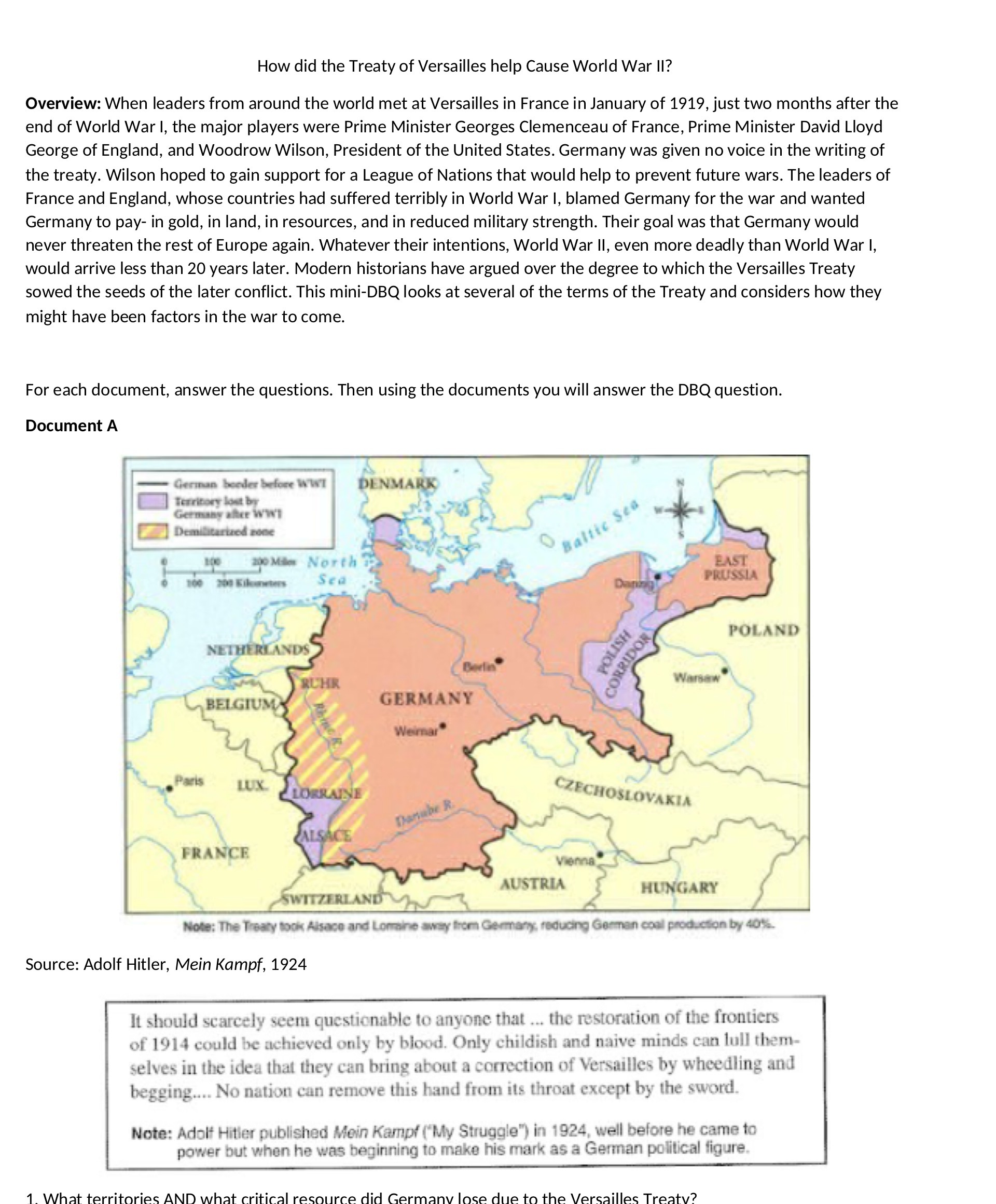How did the Treaty of Versailles help Cause World War II? Overview: When leaders from around the world met at Versailles in France in January of 1919, just two months after the end of World War I, the major players were Prime Minister Georges Clemenceau of France, Prime Minister David Lloyd George of England, and Woodrow Wilson, President of the United States. Germany was given no voice in the writing of the treaty. Wilson hoped to gain support for a League of Nations that would help to prevent future wars. The leaders of France and England, whose countries had suffered terribly in World War I, blamed Germany for the war and wanted Germany to pay- in gold, in land, in resources, and in reduced military strength. Their goal was that Germany would never threaten the rest of Europe again. Whatever their intentions, World War II, even more deadly than World War I, would arrive less than 20 years later. Modern historians have argued over the degree to which the Versailles Treaty sowed the seeds of the later conflict. This mini-DBQ looks at several of the terms of the Treaty and considers how they might have been factors in the war to come. For each document, answer the questions. Then using the documents you will answer the DBQ question. Document A German beeder before WWI DENMARK Territory lost by Germany after Ww'S Demilitarized zone Baltic Sea 20 Miles North EAST Sea PRUSSIA POLAND NETHERLANDS POLISH Berlin" CORRIDOR RUHR Warsaw BELGIUM GERMANY Weimar* Paris LUX LORRAINE CZECHOSLOVAKIA Danube R. FRANCE AUSTRIA SWITZERLAND HUNGARY Note: The Treaty took Alsace and Lom by reducing German coal production by 40%% Source: Adolf Hitler, Mein Kampf, 1924 It should scarcely seem questionable to anyone that ... the restoration of the frontiers of 1914 could be achieved only by blood. Only childish and naive minds can lull them- selves in the idea that they can bring about a correction of Versailles by wheedling and begging... No nation can remove this hand from its throat except by the sword. Note: Adolf Hitler published Mein Kampf ("My Struggle") in 1924, well before he came to power but when he was beginning to make his mark as a German political figure







